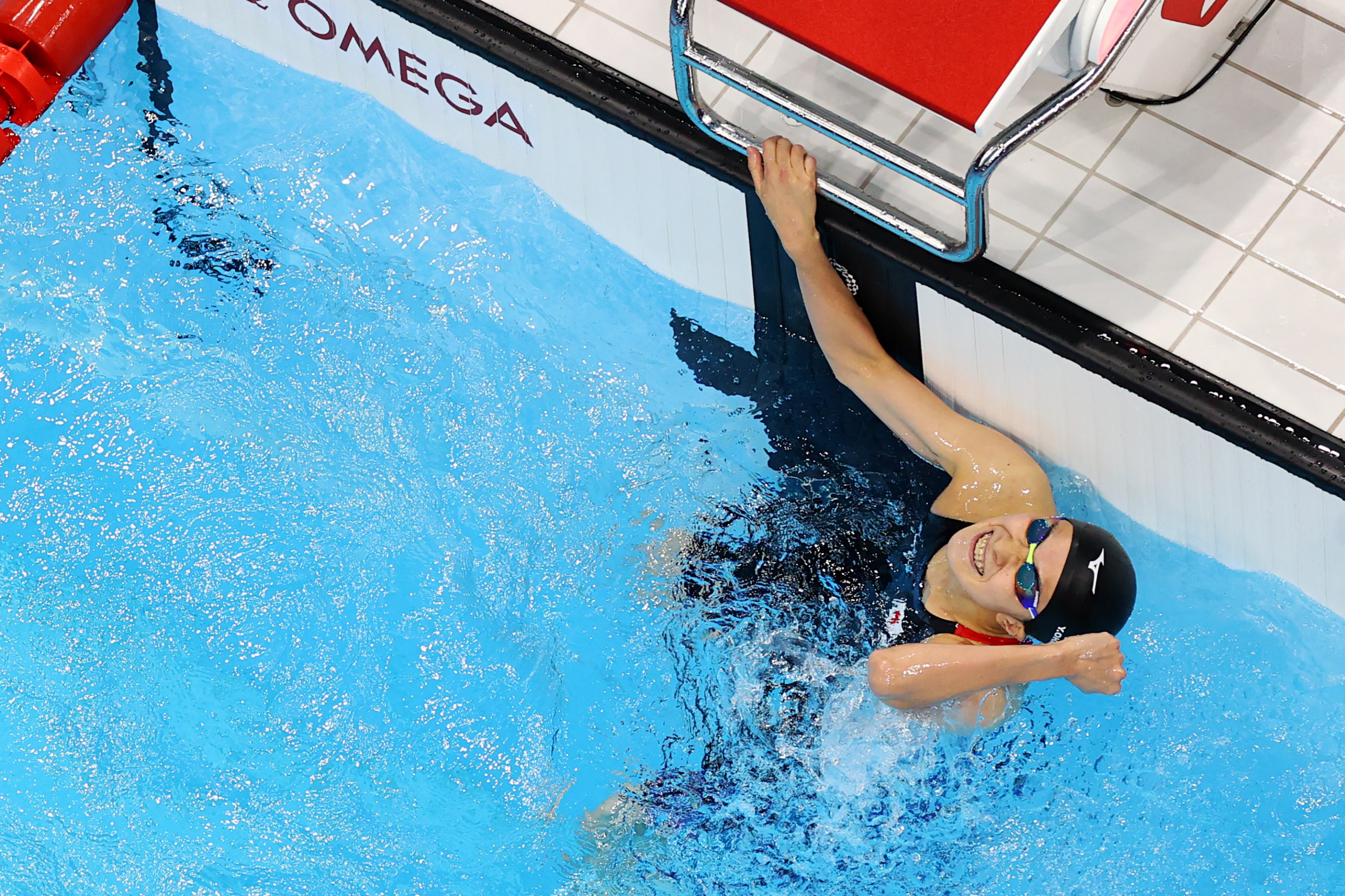That you could hear anything in the seconds after Yui Ohashi touched the wall to win an electric women's 200-meter individual medley in Tokyo Wednesday morning made the moment just a little bittersweet. In any other year—at an Olympic Games that isn't so strange and austere—that home crowd is real and raucous and that Olympian is basking in the adoration of spectators she's spent her life hoping to impress.
Still, the smile on Ohashi's face after her race didn't look like it could get any bigger. The 25-year-old traded on her buttery backstroke, a typically solid breaststroke leg, and a terrific final 15 meters to finish in 2:08:52 and get the IM double. (She won Japan's first gold medal in the 400-meter IM on Sunday.) "It doesn’t feel real. It is like a dream for me," she said. If fans weren't there to offer audible confirmation, it was clear that a new and somewhat surprising face of Japanese swimming at these Olympics had emerged.
Ohashi's success in itself isn't surprising: She seemed destined for a podium after medal finishes in the individual medleys at recent Pan Pacific Championships and World Championships. And by the time she made her way to the starting block at the 200 IM final, her position had strengthened. Australian Kaylee McKeown, who recorded this year's fastest time in the world in the event, dropped the 200 IM from her program to preserve her energy for the individual backstroke events; 32-year-old Hungarian swimmer Katinka Hosszú, the woman who has dominated individual medley events in international competition for the last decade and holds the world record, has struggled in Tokyo so far. But the position Ohashi found herself in after winning her second gold on Wednesday—that is, home hero—was a surprise. If swimming fans were counting on anyone to deliver glory to the Japanese national team, it was Daiya Seto, the reigning world champion and favorite to win gold in the men's 400-meter IM. In the shocker of the Olympics, Seto failed to even make the final.
I cringed a little bit at a question asked of Ohashi: whether she saw herself as a new national hero following Naomi Osaka's early exit from the Olympics, which captures pretty nicely the cruel way the Olympics can turn athletes into disposable, interchangeable vessels national pride is shuffled between. "I don’t really feel like a star," Ohashi said, waving it off.
Even without the weight of Osaka-level national expectation and celebrity, Ohashi has endured some pain getting here. She was diagnosed with anemia several years ago, missed the Rio team, was disqualified from the 200-meter IM at the 2019 Worlds for doing an illegal second dolphin kick on her breaststroke pullout, and says she's struggled badly with her own confidence. "When I overcame anemia in 2015, I thought that I would never have to suffer like that again, but in 2019 I hit another wall," she said. "Anemia is a physical condition so the problem is very clear. In 2019, though I was physically in great condition, my time wasn’t so great. The problem was mental, and there was no clear solution. In that sense, I was struggling more than in 2015."
Ohashi credited her coach for encouraging her to keep swimming, and said also she'd felt buoyed by the success of one of her teammates earlier in the day, 19-year-old Tomoru Honda (a guy far more thrilled with his silver in the 200-meter men's butterfly than Hungary's Kristof Milak was with his own gold). The American Alex Walsh kept things close and exciting, and even led out of the last turn. It ended up being a race in which every last bit of confidence and momentum probably mattered.






